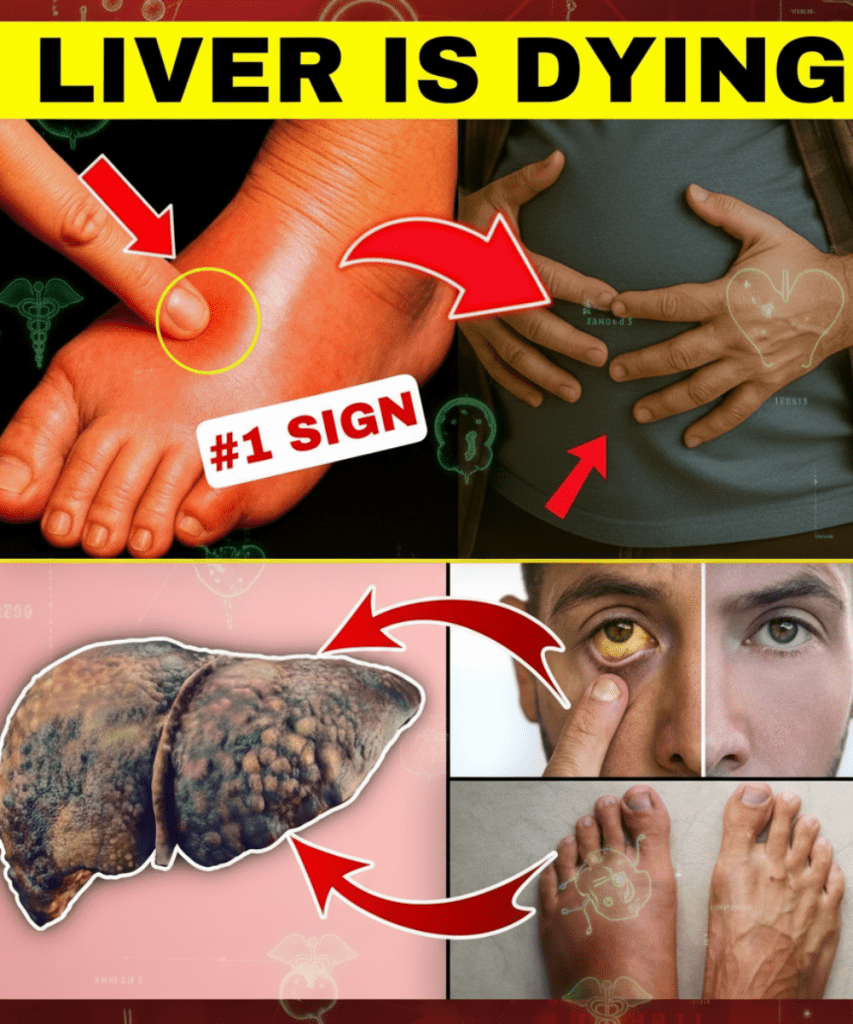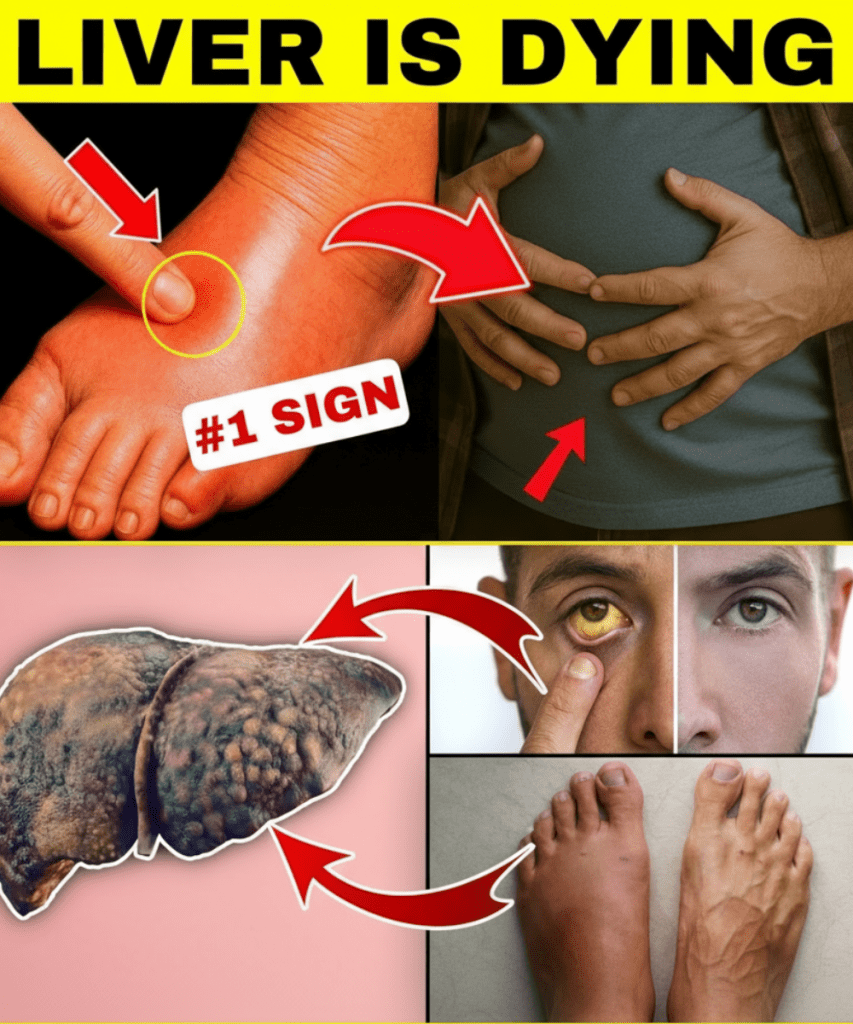Your liver is a silent hero, tirelessly cleansing your blood, storing vital nutrients, and powering digestion. But what happens when this unsung champion starts to falter? It doesn’t scream for attention—it whispers through subtle signs that are easy to miss. Ignoring these warnings could lead to serious health consequences, but catching them early can save your liver and transform your well-being. Dive into this guide to uncover the critical signals your liver might be sending and learn actionable steps to keep it thriving. Are you ready to listen to your body’s quiet cries for help?

Why Your Liver Matters More Than You Think
Your liver is the body’s powerhouse, performing over 500 essential functions. It detoxifies harmful substances, produces bile for digestion, and regulates blood sugar, cholesterol, and proteins. When it struggles, your entire system feels the ripple effect. The problem? Liver issues often develop silently, with symptoms so subtle they’re mistaken for stress or fatigue. By the time you notice, damage may already be underway. Understanding the early signs empowers you to act before it’s too late, ensuring your liver stays strong and your health remains vibrant.
🔍 15 Warning Signs Your Liver Needs Attention
1. Relentless Fatigue That Won’t Quit
Ever feel drained despite sleeping eight hours? A struggling liver can’t filter toxins effectively, forcing your body to work overtime. This leaves you exhausted, no matter how much rest you get. If coffee isn’t cutting it and fatigue feels like your new normal, your liver might be signaling distress.
2. Yellowing Skin or Eyes (Jaundice)
A yellowish tint on your skin or in the whites of your eyes is a red flag. Known as jaundice, this occurs when your liver fails to process bilirubin, a waste product. It’s a visible clue that your liver needs immediate attention.
3. Dark, Tea-Colored Urine
Urine that looks unusually dark, like brewed tea, could mean excess bilirubin is spilling into your system. This is often a sign your liver is overwhelmed and struggling to keep up with detoxification.
4. Pale or Clay-Colored Stools
Healthy bile gives stools their brown color. If your stools turn pale, gray, or clay-like, it could indicate reduced bile production or a blockage in your liver or bile ducts. Don’t ignore this unusual change.
5. Swelling in Your Abdomen, Legs, or Ankles
Fluid buildup, known as edema or ascites, causes swelling in your belly, legs, or ankles. This happens when your liver can’t regulate fluids and proteins, a serious sign of dysfunction that demands attention.
6. Persistent Itchy Skin
Unexplained itching, especially on your arms, legs, or torso, may stem from bile salts accumulating under your skin. If scratching doesn’t relieve it, your liver could be the culprit.
7. Loss of Appetite or Feeling Full Quickly
An inflamed or overworked liver slows digestion, making food less appealing. If you’re skipping meals or feeling full after a few bites, it’s time to check on your liver health.
8. Nausea or Vomiting
Toxins building up in your system can irritate your digestive tract, causing persistent nausea or vomiting. If these symptoms linger without a clear cause, your liver might be struggling to detoxify.
9. Pain in the Upper Right Abdomen
A dull ache or discomfort under your right ribs could signal liver inflammation or swelling. This area is where your liver resides, and pain here is a direct call for attention.
10. Bruising or Bleeding Easily
Frequent bruises, nosebleeds, or bleeding gums may indicate your liver isn’t producing enough clotting proteins. This subtle sign can point to significant liver stress.
11. Brain Fog or Confusion
Toxins that your liver fails to filter can reach your brain, causing confusion, memory lapses, or trouble focusing. If your mind feels cloudy, your liver might be to blame.
12. Muscle Weakness or Wasting
Liver dysfunction disrupts metabolism, leading to muscle breakdown and weakness. If you’re noticing a loss of strength or muscle mass, your liver could be struggling to keep up.
13. Red Palms or Spider-Like Veins
Red, mottled palms (palmar erythema) or small, web-like veins (spider angiomas) on your skin often signal hormonal imbalances tied to liver issues. These visible changes are a call to act.
14. Swollen, Tight Belly
A bloated, tight abdomen is a hallmark of fluid buildup due to advanced liver problems. Known as ascites, this symptom requires urgent medical evaluation to prevent further damage.
15. Bad Breath or Metallic Taste
A bitter or metallic taste in your mouth, paired with unpleasant breath, can indicate your liver is struggling to clear waste. This subtle sign is easy to dismiss but critical to notice.
🛡️ How to Protect and Strengthen Your Liver
Your liver is resilient, but it needs your support to thrive. Simple, intentional lifestyle changes can make a profound difference in its health and your overall vitality. Here’s how to give your liver the care it deserves:
Nourish with a Liver-Friendly Diet
Fuel your liver with nutrient-dense foods. Load up on colorful fruits and vegetables like berries, spinach, and broccoli, which are packed with antioxidants to combat inflammation. Choose lean proteins like chicken, fish, or legumes to support liver repair without overloading it. Whole grains like quinoa and brown rice provide steady energy without taxing your liver. Avoid processed foods, sugary snacks, and trans fats, which can inflame and overburden your liver.
Limit Alcohol and Toxins
Excessive alcohol is one of the liver’s worst enemies, as it forces your liver to work overtime to detoxify. Stick to moderate drinking—up to one drink per day for women and two for men—or consider cutting it out entirely for a liver reset. Be mindful of environmental toxins, too. Swap chemical-heavy cleaning products for natural alternatives and avoid unnecessary medications that strain your liver.
Stay Active for a Healthy Weight
Regular exercise keeps your weight in check and boosts liver function. Aim for at least 150 minutes of moderate activity, like brisk walking, cycling, or swimming, each week. Exercise improves blood flow, reduces fat buildup in the liver, and enhances detoxification. Even small bursts of movement, like a 10-minute dance session, can make a difference.
Hydrate for Optimal Detox
Water is your liver’s best friend. Staying hydrated helps flush toxins and supports bile production. Aim for at least eight glasses of water daily, and add lemon or cucumber for a refreshing, liver-supporting twist. Herbal teas like dandelion or green tea can also promote detoxification.
Prioritize Sleep for Recovery
Your liver repairs itself during sleep, so aim for 7–9 hours of quality rest each night. Create a calming bedtime routine—dim the lights, avoid screens, and sip chamomile tea—to signal your body it’s time to recharge. Consistent sleep strengthens your liver’s ability to detoxify and regenerate.
Monitor with Regular Checkups
Routine liver function tests can catch issues early, especially if you take medications long-term or have risk factors like obesity or diabetes. Ask your doctor about blood tests to measure liver enzymes and bilirubin levels. Early detection means easier interventions and better outcomes.

🌟 The Power of Proactive Liver Care
Taking care of your liver isn’t just about avoiding disease—it’s about unlocking your body’s full potential. A healthy liver boosts your energy, sharpens your mind, and enhances your overall well-being. By listening to its subtle signals and making smart lifestyle choices, you’re investing in a longer, healthier life.
💡 Your Next Steps to a Thriving Liver
Don’t wait for symptoms to worsen. Start today by incorporating one or two liver-friendly habits into your routine. Swap a sugary snack for a handful of berries, take a 15-minute walk, or schedule that overdue doctor’s visit. Small actions compound into big results, and your liver will thank you with renewed vitality.
A Final Call to Action
Your liver is working tirelessly right now, but it’s counting on you to keep it strong. Those subtle signs—fatigue, itching, or a metallic taste—aren’t just annoyances; they’re your body’s way of waving a red flag. Pay attention, act early, and embrace the habits that protect this vital organ. A healthier liver means a healthier you, and the journey starts with a single step. What will you do today to show your liver some love?









